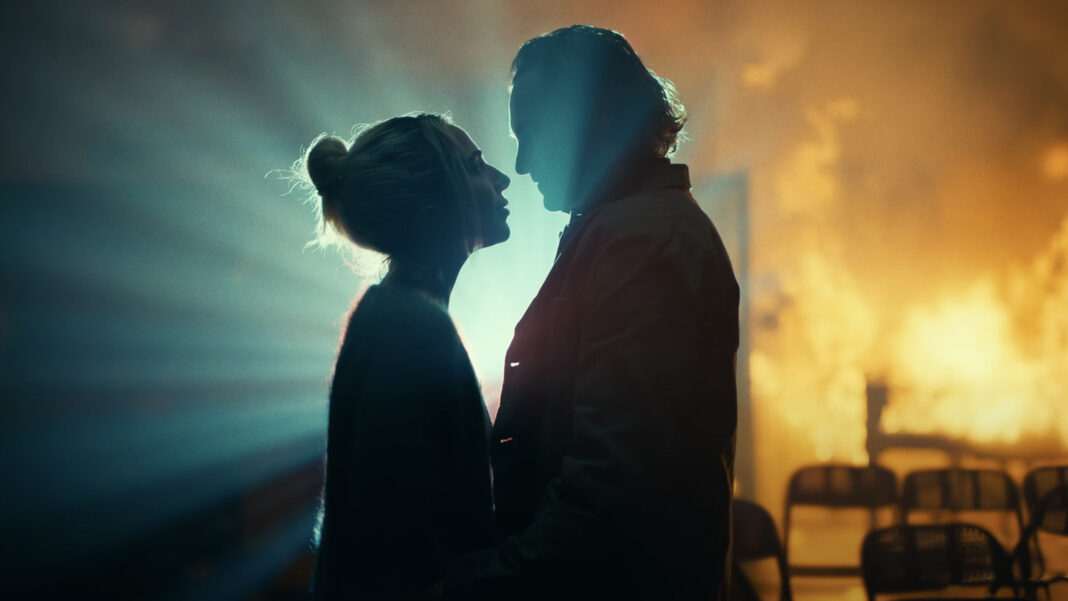A cinephile goes to the theater hundreds of times in the hopes of eventually seeing one film with the innovation and the intensity of emotion of Nickel Boys. It’s the sort of experience that justifies my increasingly stupid decision to dedicate my life to the movies. This film grabs you and shakes you out of your doldrums with something new, something bold, something with a point of view — or, in the case of Nickel Boys, two points of view.
That’s because co-screenwriter and director RaMell Ross made the daring decision to shoot almost all of his adaptation of Colson Whitehead’s Pulitzer Prize-winning novel through point-of-view shots from the perspective of its two central characters. They are Elwood and Turner, two young men with drastically different attitudes and worldviews who meet at a Florida reform school in the early 1960s.
Elwood (Ethan Herisse) is a bright kid, raised by his affectionate grandmother (Aunjanue Ellis-Taylor) in Tallahassee. He works hard enough in school to earn a spot at a local college. But on the first day of classes, Elwood hitches a ride with a man who has stolen a car, an innocent mistake that gets him shipped off to the Nickel Academy, where the residents are routinely abused by the staff in ways large and small.
READ MORE: The Best Movies of the Year So Far
That’s where Elwood encounters Turner (Brandon Wilson), who doesn’t share Elwood’s optimism or his confidence that he can earn his way out of reform school through good behavior. Still, the pair become fast friends, and help each other navigate through Nickel’s endless obstacles, including violent bullies and even more dangerous teachers (including a quietly terrifying Hamish Linklater as a menacing administrator.)
That description may make Nickel Boys sound like a conventional (if heartbreaking) drama about young men enduring shared childhood trauma. It is not, and that’s due in large part to the way Ross adapted Whitehead’s book; placing the audience inside Elwood and Turner’s perspectives, and assembling the film as a series of interlocking memories rather than a traditional narrative.
Although Nickel Boys begins with Elwood as a child (played in fleeting glimpses by Ethan Cole Sharp), it does not proceed in linear fashion through his life. Within minutes, it introduces a middle-aged version of Elwood (played by Daveed Diggs) living decades later, haunted by the events depicted elsewhere in the film. In these sequences, a government investigation into the long-buried crimes committed at Nickel forces the older Elwood to reflect on his past.
From there, Ross jumps between events in numerous time periods, and blends them with authentic archival photography and footage of Black life in the 1960s South and the actual Florida school that served as Whitehead’s initial inspiration. All of it, when combined with those extended point-of-view shots, convey a sense of what life was like for Nickel Academy’s survivors before, during, and after their time there.
Ross isn’t the first filmmaker to attempt to tell a cinematic story from a first-person perspective. In 1947, actor Robert Montgomery made his feature directorial debut with an adaptation of Raymond Chandler’s detective novel The Lady of the Lake. Montgomery played Chandler’s famous private eye Philip Marlowe, but mostly as an off-camera voice; in an attempt to capture the subjective nature of hard-boiled crime fiction, Montgomery shot the film as if the camera itself was Marlowe.
Montgomery’s Lady in the Lake remains an interesting experiment — and an utter bore. Dialogue scenes drag on endlessly with very few cuts, as Montgomery tries his best to not cheat Marlowe’s POV. It’s an admirable effort, if a failure nonetheless, and its first-person gimmick never really works.
In Nickel Boys it does, because Ross doesn’t treat his first-person camera like a gimmick or a stunt, but rather as a storytelling device designed to bring us into the minds of the characters. He also doesn’t fall into the trap Montgomery did of attempting to tell a straightforward narrative through a first-person perspective. Ross’ approach is far more impressionistic. He gives us flashes of memories; extreme close-ups on objects; heightened use of sounds. The result genuinely feels like a journey through the psyche of another person.
I will be honest with you. While I was absolutely floored by Nickel Boys’ opening sequences, which depict life for young Elwood in the Jim Crow South, and was even more impressed by the subtle way Ross introduces Turner and his perspective to his first-person conceit, I did begin to get confused by the shifting between their two POVs for a little while. It’s not always immediately clear whose experience Ross is presenting at any given point. I briefly wondered whether a more objective camera would have provided a more compelling version of these events.
Then Ross built to an ending that’s not only emotionally devastating and utterly shocking (I haven’t read Whitehead’s book), it retroactively explains and justifies all of Ross’ stylistic choices; not just in terms of imagery, but also his striking uses of music, sound design, and montage editing. By Nickel Boys’ bravura crescendo, you truly feel like you’ve seen the world in a new way. And maybe seeing movies in a new way too.
Additional Thoughts:
-Period films often use footage from other TV shows and films to ground themselves in a specific time and place, and sometimes to comment upon their own stories. Still, I am hard-pressed to think of a film that uses footage from another movie as thoughtfully or as powerfully as Nickel Boys uses moments from The Defiant Ones, Stanley Kramer’s film about two prisoners (played by Tony Curtis and Sidney Poitier) who escape from their incarceration in shackles and must learn to work together, despite their differences.
-Dissertations will surely be written about the camerawork in this movie, not just for its POV but for its choices of specific angles, particularly its repeated motif of images looking directly up at the sky, or, in the shot that has become the film’s main poster, up to a mirrored ceiling reflecting the two protagonists back at themselves. If the Academy does not nominate Jomo Fray for Best Cinematography this year, that will be one of the most egregious oversights in recent Oscar history.
RATING: 10/10
Nickel Boys is currently playing at the New York Film Festival. It is scheduled to open in limited release on October 25.
The Least Likely Sequels That Actually Happened
We cannot believe these sequels exist.


